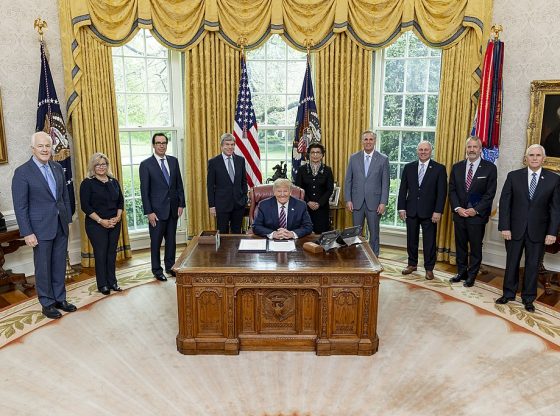President Trump has signed an Executive Order expanding school choice opportunities for students.
According to Town Hall:
School closures during the coronavirus pandemic have already had devastating impacts on students and their families across the country. Failing grades, deteriorating health, and financial hardship, to name the most pressing. On Monday, President Trump issued an executive order that will help alleviate some of those new struggles, the Executive Order on Expanding Educational Opportunity Through School Choice.
The legislation will provide Emergency Learning Scholarships for Students, meaning that it will allow funds from the Community Services Block Grant program “to be used by grantees and eligible entities to provide emergency learning scholarships to disadvantaged families for use by any child without access to in-person learning.”
The EO describes how school closures have affected not only child development, but the health of students who are now denied access to important programs.
The prolonged deprivation of in-person learning opportunities has produced undeniably dire consequences for the children of this country. The Centers for Disease Control and Prevention has stated that school attendance is negatively correlated with a child’s risk of depression and various types of abuse. States have seen substantial declines in reports of child maltreatment while school buildings have been closed, indicating that allegations are going unreported. These reductions are driven in part by social isolation from the schoolteachers and support staff with whom students typically interact and who have an obligation to report suspected child maltreatment. The American Academy of Pediatrics (AAP) has also found that school closures have a “substantial impact on food security and physical activity for children and families.” Additionally, a recent survey of educators found student absences from school, including virtual learning, have nearly doubled during the pandemic, and as AAP has noted, chronic absenteeism is associated with alcohol and drug use, teenage pregnancy, juvenile delinquency, and suicide attempts.
A recent UNICEF study found that reopening schools does not increase the rate of infection.











